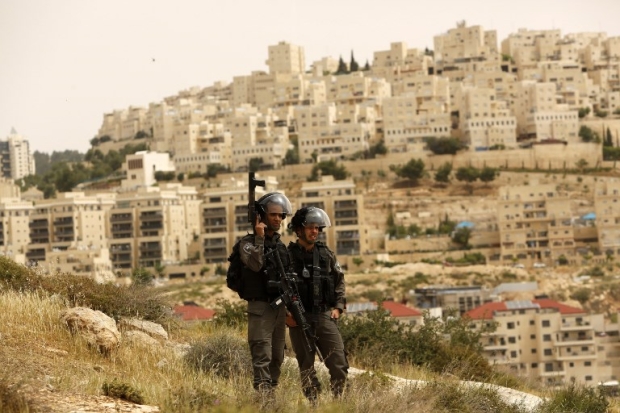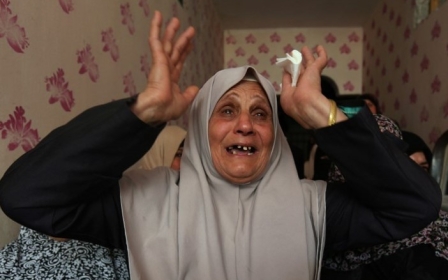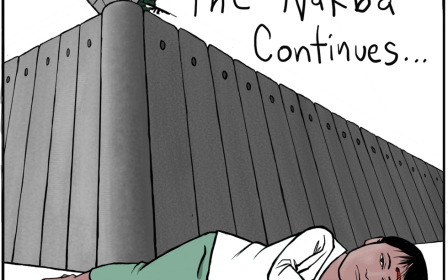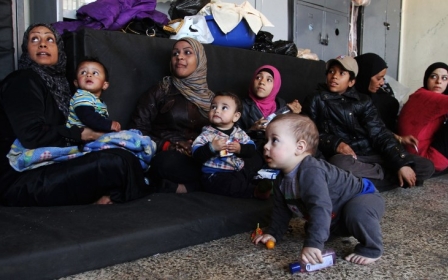70 years of Nakba: Why can’t Palestinians walk home?
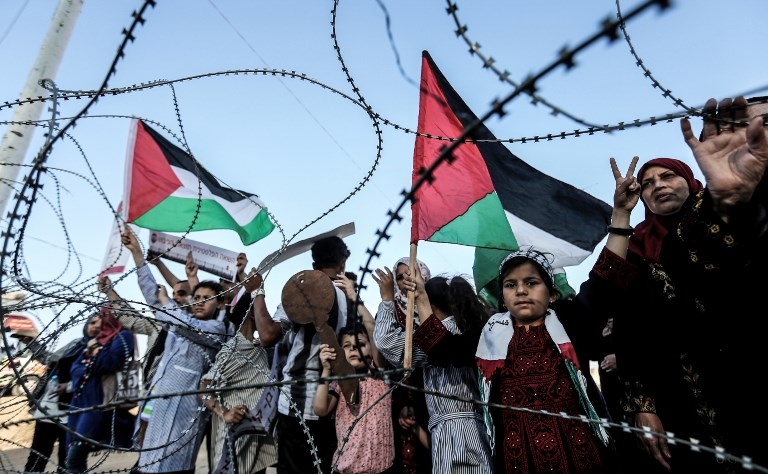
I would not be writing these words today if Israel had not been created in my homeland, Palestine, against the will of indigenous Palestinians. I might instead be writing to celebrate the independence of a democratic Palestine in which indigenous Jews, Christians and Muslims lived as equals, building the country together after the end of the British Mandate. Palestine would be a full member of the United Nations; it might even have been allowed to enter the Eurovision song contest and won.
Had Israel been created in Wales instead, against the will of Welsh people, I might be writing in solidarity as they commemorated their trychineb (the Welsh word for "catastrophe"). Thankfully for the great Welsh people, they were spared the creation of Israel in their homeland and the expulsion of their people to neighbouring countries.
Atrocious massacres
Palestinians are again in mourning, commemorating 70 years since their catastrophe, which resulted from the creation of Israel in their homeland. They are still seeking their legitimate rights, principally their right to return home.
Many words will be written about what happened in the lead-up to, and during, the Nakba. Those seeking to justify Zionist crimes will argue that it was the victims’ fault for fleeing their homeland, rather than the reality that they were driven out, many at gunpoint, seeking refuge from Zionist Jewish terror. Yes, it was Zionist Jewish terror that deliberately drove Palestinians away from Jerusalem, Yaffa, Haifa and Akka, along with villages such as Deir Yassin and Qibya, the scenes of atrocious massacres by Zionist terrorists.
Israel continues to deny the Nakba, has legislated to punish those who commemorate it, and has denied Palestinians their rights, including the right of return
Palestinians are not the first or only people to flee for their lives. You need only look at Syrians today to see what human beings do in order to survive and to ensure the safety of their children. They take whatever possessions they can carry and run, but always with the expectation to return once the violence ends.
Nobody would deny the Syrian people their absolute right to return to the homes they left, and if they were destroyed, they would be helped to rebuild them. The outcome of what happened in 1947-48 was a catastrophe, which non-Palestinians could only truly understand if it happened to them.
Denying the Nakba
The population of my city of residence, Birmingham, is 1.1 million - almost that of the entire Palestinian population that inhabited historic Palestine in 1948. I can imagine the catastrophe that Brummies (what residents of Birmingham are lovingly called) would have felt had more than half of that population been terrorised into leaving their beloved city, with most never being allowed to return, as their homes were handed over to non-Brummies. Their lives in Birmingham would have become memories overnight, while the trauma of their dispossession would have been carried through generations.
I have no doubt that Mancunians, Geordies, Liverpudlians and Londoners would have stood shoulder-to-shoulder with Brummies until they were allowed to return, welcoming them into their homes as they sought refuge from their tormenters.
Israel has neither given all who live between the Jordan River and the Mediterranean Sea equal rights, nor accepted the creation of a Palestinian state on 1967 borders to end its occupation, considered illegal under international law. In fact, it denies there is an occupation in any part of historic Palestine.
Israel has annexed territories it occupies illegally, including East Jerusalem, and has sought recognition of the whole of the holy city as its capital, rather than accepting that it could be the capital of Israel and Palestine. It continues to build illegally in the occupied territories and is considering legalising outposts it has thus far considered illegal.
Demonising Palestinians
Israel has continued its siege on Gaza, now in its 11th year. It controls all access to historic Palestine, including access to the occupied territories, and has implemented a policy to deny entry to human rights activists and campaigners who have supported the boycott, divestment and sanctions (BDS) movement. Having failed to silence criticism of its policies, it has cynically sought to conflate anti-Zionism with anti-Semitism.
Most significantly, perhaps, Israel has sought to demonise Palestinians. It portrays us as a lesser people, with violence as part of our DNA - a bunch of terrorists with limited intelligence. That, to me, is the most abhorrent of all the abhorrent actions Israel has taken against us since its creation.
What is troubling is that supposedly civilised westerners who claim they fight for equality and human rights, including those holding the highest offices of state, have adopted this narrative, or at least continue to support Israel despite the facts that are there for all to see.
While people across the globe sympathise with Palestinians and understand Israel’s crimes, the political elite refuse to represent their citizens and continue to support Israel when, had its actions been committed against their own citizens or against Jews, they would not rest until it was punished.
How can anyone explain to Palestinians the stance of the US in recognising Jerusalem as Israel’s, but not Palestine’s, capital? How can western leaders support Israel’s claim to self-defence when it kills and maims thousands of Palestinians in major wars against Gaza, or the daily trickle of killings in the West Bank?
International silence
The world’s silence as Israeli snipers used sophisticated weapons, including some supplied by the West, to pick off Palestinian civilians one by one as they marched to return home through the Gaza border has been deafening. The silence in the face of the deaths and injuries of medics and journalists has been particularly galling.
I remind all who are interested in peace in historic Palestine that we did not choose our occupiers. They chose Palestine, knowing it was not an empty land, but one that had a people - my people, Palestinians who have paid with their land, lives and rights.
The families that hailed from Najd would walk home, given a chance to do so, as would the families hailing from dozens of other ethnically cleansed villages in the Gaza district
Seventy years after the Nakba, Palestinians decided they could not wait any longer. Enough is enough. It was time to go home, and that was the reason for the Great Return March. If the refugees did go home, Gaza would no longer be the most densely populated place on earth; its population of two million would fall to 400,000, as 80 percent of its residents are refugees from other parts of historic Palestine.
They would not need large sums of money to be repatriated. They could simply walk to the homes from which they were expelled in 1948.
Take the example of Najd, a village just 14km north of Gaza City, whose population of 700 Palestinians was expelled in May 1948 by the Negev Brigade. Its inhabitants fled to Gaza. On its land, the Israelis built Sderot, a town that now has a population of 24,000.
Israeli officials take foreign dignitaries to show them the remains of "rockets" fired from Gaza that landed in or around the town, but they do not mention that they are actually standing on land that was once Najd, before it was ethnically cleansed of Palestinians.
The families that hailed from Najd would walk home, given a chance to do so, as would the families hailing from dozens of other ethnically cleansed villages in the Gaza district such as Arab Suqrir, Barbara, Barqa, al-Batani al-Gharbi, al-Batani al-Sharqi, Bayt Daras, Bayt 'Affa, Bayt Jirja, Bayt Tima, Bil'in, Burayr, Dayr Sunayd, Dimra and al-Faluja, to name a few.
- Kamel Hawwash is a British-Palestinian engineering professor based at the University of Birmingham and a long-standing campaigner for justice, especially for the Palestinian people. He is vice chair of the British Palestinian Policy Council (BPPC) and a member of the executive committee of the Palestine Solidarity Campaign (PSC). He appears regularly in the media as a commentator on Middle East issues. He runs a blog at www.kamelhawwash.com and tweets at @kamelhawwash. He writes here in a personal capacity.
The views expressed in this article belong to the author and do not necessarily reflect the editorial policy of Middle East Eye.
Photo: A girl raises a Palestinian flag as a boy holds a wooden key symbolising return at the Gaza border on 13 May 2018, during a demonstration commemorating the Nakba (AFP)
Middle East Eye propose une couverture et une analyse indépendantes et incomparables du Moyen-Orient, de l’Afrique du Nord et d’autres régions du monde. Pour en savoir plus sur la reprise de ce contenu et les frais qui s’appliquent, veuillez remplir ce formulaire [en anglais]. Pour en savoir plus sur MEE, cliquez ici [en anglais].



